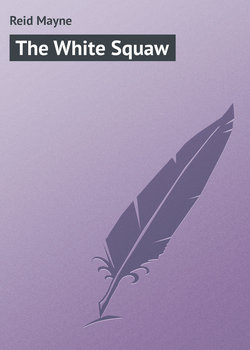Читать книгу The White Squaw - Reid Mayne - Страница 8
Chapter Eight.
Sansuta
ОглавлениеAs we have said, Wacora had white blood in his veins.
His mother was a Spaniard, the daughter of a planter, who had lived near the town of Saint Augustine.
Almost a child at the time of her capture, she eventually forgot her own kindred, and became devoted to the chief who had been her captor.
It ended in her becoming his wife, and the mother of Wacora.
Albeit that in Wacora’s veins white blood flowed, his soul was Indian, and he loved his father’s people as if he had been of their purest blood.
He was a patriot of the most enthusiastic stamp.
His judgment, clear in most things, was clouded in estimating the qualities of the white race, simply because he had seen the worst phases of their character, its cupidity and selfishness.
Oluski would have answered his companion’s address, but the same train of disagreeable thought that had entered his mind at the first part of Wacora’s speech held him silent.
Wacora proceeded.
“Enough, uncle. I did not intend to trouble you with my feelings; I meant only to warn you against danger, for danger exists in all dealings with the pale-faces. They, as ourselves, are true to their instincts, and those instincts blind them to justice. Your friend, the White Chief, may be all you think of him. If so, he will rather admire your caution than blame you for mistrust; natural, because not causeless.”
Whatever reply Oluski intended, was postponed by the arrival of a third person, at whose coming Wacora sprang from the ground with a gesture of surprise and admiration.
The new comer was an Indian maiden. A perfect wood nymph.
She was a girl of slight stature, beautifully rounded limbs, with hands and feet unusually small.
Her dress was simplicity itself; yet so gracefully worn that it seemed the result of laboured art.
A tunic of bright-coloured cloth, clasped round her neck by a silver brooch, descended to her ankles, while around her waist was twisted a scarf of many colours; over her shoulders fell a bright cloth mantle, bordered with shells worked into delicate patterns; upon her head was a bead-work cap, trimmed with the plumes of the white eagle, like a fringe of newly-fallen snow; her wrists were encircled with bead bracelets, whilst embroidered mocassins covered her small feet.
She smilingly approached Oluski, and nestled close to the old chief.
Wacora seemed puzzled by the fair presence.
“I had forgotten,” said Oluski, “that you are strangers to each other. Sansuta, your cousin Wacora stands before you.”
Sansuta – for she it was – smiled upon the young Indian.
He did not approach the spot where father and daughter stood.
His impassioned eloquence had vanished.
He could scarce find words for the simplest salutation.
Oluski, perceiving his bashfulness, hastened to his relief.
“Sansuta has been upon a visit, and has only now returned. It is many years since you have seen her, Wacora. You did not expect her to have grown so tall?”
Wacora finished the sentence.
“Nor so beautiful!” he said.
Sansuta cast down her eyes.
“No praise like that should reach an Indian maiden’s ear,” said Oluski, with a smile; “nevertheless, Sansuta is as the Great Spirit has made her, that is sufficient.”
The girl did not seem to share her father’s sentiments; a slight pout of her beautiful lips implied that the compliment was by no means unpleasant.
Wacora was again dumb, as if half regretting what he had said.
Such is the power that beauty exercises over bravery.
The young Indian warrior actually blushed at his boldness.
“But what brings you here, Sansuta?” asked her father. “Did you not know that your cousin and myself were in council?”
The pretty Sansuta had recovered her composure.
The pout had disappeared from her lips, which, opening to answer her father’s question, revealed two rows of teeth of a dazzling whiteness.
“I am here to bid you both to the evening meal,” she said.
Her voice, melodious and soft, struck upon Wacora’s ear like the music of the mocking-bird.
The charm was complete.
Forgetful of his late conversation, forgetful for a time of his thoughts and aspirations, oblivious of his enthusiasm, he stood a very child, eagerly watching her and listening for those tones again.
It was Oluski, however, who spoke.
“Come, Wacora, let us go with her.”
The old chief strode away from the spot, Sansuta by his side.
Wacora followed, with a new feeling in his heart.
It was love!
